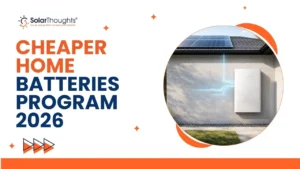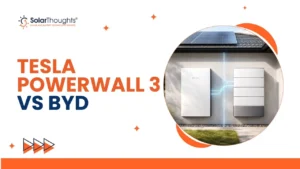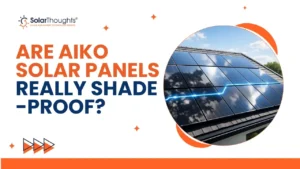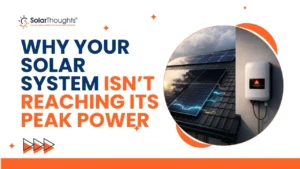Are you considering Installing new solar panels or upgrading your existing system? If so, you’ve probably come across the term “N-type solar panels” in your research. These cutting-edge photovoltaic cells are quickly becoming the gold standard in solar technology. In this comprehensive guide, we’ll explore the numerous advantages of N-type solar panels and why they might be the perfect choice for your solar installation project.
Table of Contents
Toggle
Key Advantages of N-type Solar Panels
1. Superior Efficiency
One of the most significant advantages of N-type solar panels is their superior efficiency compared to traditional P-type panels.
N-type panels can convert a higher percentage of sunlight into usable electricity, typically achieving efficiency rates of 21-23% or even higher. This increased efficiency means you can generate more power from the same amount of roof space, making N-type panels an excellent choice for installations with limited area.
Read more on Top Switchboard Upgrade Services in Brisbane
2. Better Performance in High Temperatures
Solar panels, like most electronic devices, tend to lose efficiency as temperatures rise. However, N-type panels have a distinct advantage in this area.
N-type solar cells have a lower temperature coefficient, meaning they maintain their efficiency better in hot conditions. This characteristic makes them particularly valuable in regions with high ambient temperatures or on rooftops that receive intense sunlight.
3. Improved Low-Light Performance
Not every day is going to be bright and sunny, but that doesn’t mean your solar panels should stop working efficiently. N-type solar panels excel in low-light conditions, such as cloudy days or during early morning and late afternoon hours.
This improved performance in less-than-ideal lighting conditions means your N-type panels will generate more energy throughout the year, regardless of weather variations.
4. Reduced Light-Induced Degradation (LID)
All solar panels experience some level of efficiency loss over time, but N-type panels have a significant advantage in this area.
Light-induced degradation (LID) is a phenomenon where solar panels lose a small percentage of their efficiency within the first few months of operation. N-type panels experience minimal LID, often less than 1%, compared to 2-3% for P-type panels. This means your N-type panels will maintain their high efficiency for longer.
5. Longer Lifespan
Investing in solar panels is a long-term commitment, and you want your investment to last. N-type solar panels typically have a longer lifespan than their P-type counterparts.
Many manufacturers offer warranties of 25-30 years for N-type panels, with some even extending to 30-35 years. This longevity is due to their resistance to various degradation factors, ensuring that your solar system will continue to generate clean energy for decades to come.
6. Better Bifacial Performance
Many N-type solar panels are designed with bifacial capabilities, meaning they can generate electricity from both the front and back sides of the panel.
This design allows N-type bifacial panels to capture reflected light from the surface below, potentially increasing energy yield by 5-30% depending on the installation conditions. This makes them particularly effective for ground-mounted systems or flat commercial rooftops.
7. Improved Shade Tolerance
Partial shading can significantly impact the performance of solar panels. However, N-type panels generally have better shade tolerance than P-type panels.
This improved performance under partial shade conditions is due to the cell structure and wiring configuration of N-type panels. It means that even if a portion of your roof is shaded during parts of the day, your N-type panels will continue to generate electricity more efficiently than traditional panels.
8. Lower Potential-Induced Degradation (PID)
Potential-induced degradation (PID) is another factor that can reduce the efficiency of solar panels over time. N-type panels are inherently more resistant to PID due to their cell structure.
This resistance to PID ensures that your N-type panels will maintain their high-performance levels for longer, even in challenging environmental conditions such as high humidity or extreme temperatures.
Read More About Which Type of Solar Panel is Best for My Home?
9. Versatility in Design and Application
N-type solar technology is highly versatile and can be applied to various panel designs and installations.
From sleek all-black panels for residential rooftops to large-scale bifacial panels for commercial installations, N-type technology can be adapted to suit a wide range of aesthetic preferences and functional requirements.
10. Future-Proofing Your Solar Investment
As the solar industry continues to evolve, N-type technology is positioned to become the new standard. By choosing N-type panels now, you’re future-proofing your solar investment.
Many major manufacturers are shifting their production lines to focus on N-type technology, which means better availability, continued innovation, and potentially lower costs in the future.
In conclusion, N-type solar panels offer numerous advantages over traditional P-type panels, from increased efficiency and better performance in various conditions to longer lifespans and future-proofing benefits. While they may come with a slightly higher upfront cost, the long-term benefits often outweigh this initial investment.
If you’re considering a solar installation in Brisbane or upgrading your existing system, discuss N-type panel options with your solar provider. By understanding the advantages of this cutting-edge technology, you can make an informed decision that will provide clean, efficient energy for decades.
Read More On How Much Do Solar Panels Cost in Brisbane?
Our Popular Services
New Solar Panel Installation | Upgrade Solar Panel System | Battery Storage Installation | Ev Charger Installation | Inverter Installation in Brisbane





